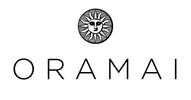In 1989 Michael Barwell cleaned commercial ships; A tough work using industrial cleaning products for which heavy-duty safety equipment, including a respirator, had to be worn. He discovered that many of the ingredients in the products he used at work was to be found in everyday household cleaners. It prompted him to look for naturally-derived alternatives that would clean safely and effectively without harming people or the environment. We sat down with Lloyd Atkin, the CEO of Biodegradable.
How did you get involved in the business?
I applied for a job, the company was described as an ‘Environmental Consultancy’ at this time. I was interested in the environment and liked the ethos of the business, I therefore became the first employee.
What is your best selling product and why.
Washing up Liquid and Laundry Liquid are the two that outsell everything else. They sell well because they are great products of course, however they are the things we use every single day in life so the volumes are bound to be higher than products such as furniture polish or glass cleaner.
What is the biggest challenge you've faced so far
There have been many but the one challenge we have faced throughout my career has been innovation, we don’t have the budgets of the big players but being small allows us to be agile. Legislation catches up and makes main stream suppliers clean their act up by banning ingredients, or the natural raw materials or products are derived from increase in demand or reduce in supply. There are also consumer demands that have implications on innovation such as increased environmental awareness of ingredients like phosphates 15 years ago that consumers take for granted now.
What is the worst chemical in our everyday products that we are not aware of?
Consumers are much better educated these days with the advent of the internet so I think discerning consumers are aware of raw materials that have both health and environmental concerns. The thing we have most enquiries on in the last year or so are ingredients in the thiazole preservative group. These include MI, MIT and BIT. There are strict EU guidelines on the levels of these substances that can be placed in products. The problem is they are so prevalent across so many product groups that the cumulative exposure could be much higher than the max exposure limit recommended by the EU.
What would be your top tips for a more sustainable everyday?
Firstly, use less! We live in a society obsessed by consumption, one of the biggest complaints we have is our washing powder clogging in machine drawers, inevitably this is because people are using far more than they need to and we have changed our instructions from ml to number of dessert spoons to make it simpler. Recycle everything you can – for some time the vast majority of our bottles have been made from UK sourced, 100% post-consumer waste. We only recycle about 40% of recyclable plastic here in the UK, so if all manufacturers do the right thing and turn to using recycled plastics there simply will not be the product in the market to meet demand. We are all ready seeing supply dry up of these materials pushing prices up significantly, in a circular economy we all have to take some responsibility and ensure we are doing what we can to contribute to the solution. Finally the most obvious and a pet hate is over packaged food, particularly vegetables in supermarkets. There are lots of ways to avoid this and we all know it is unnecessary.





